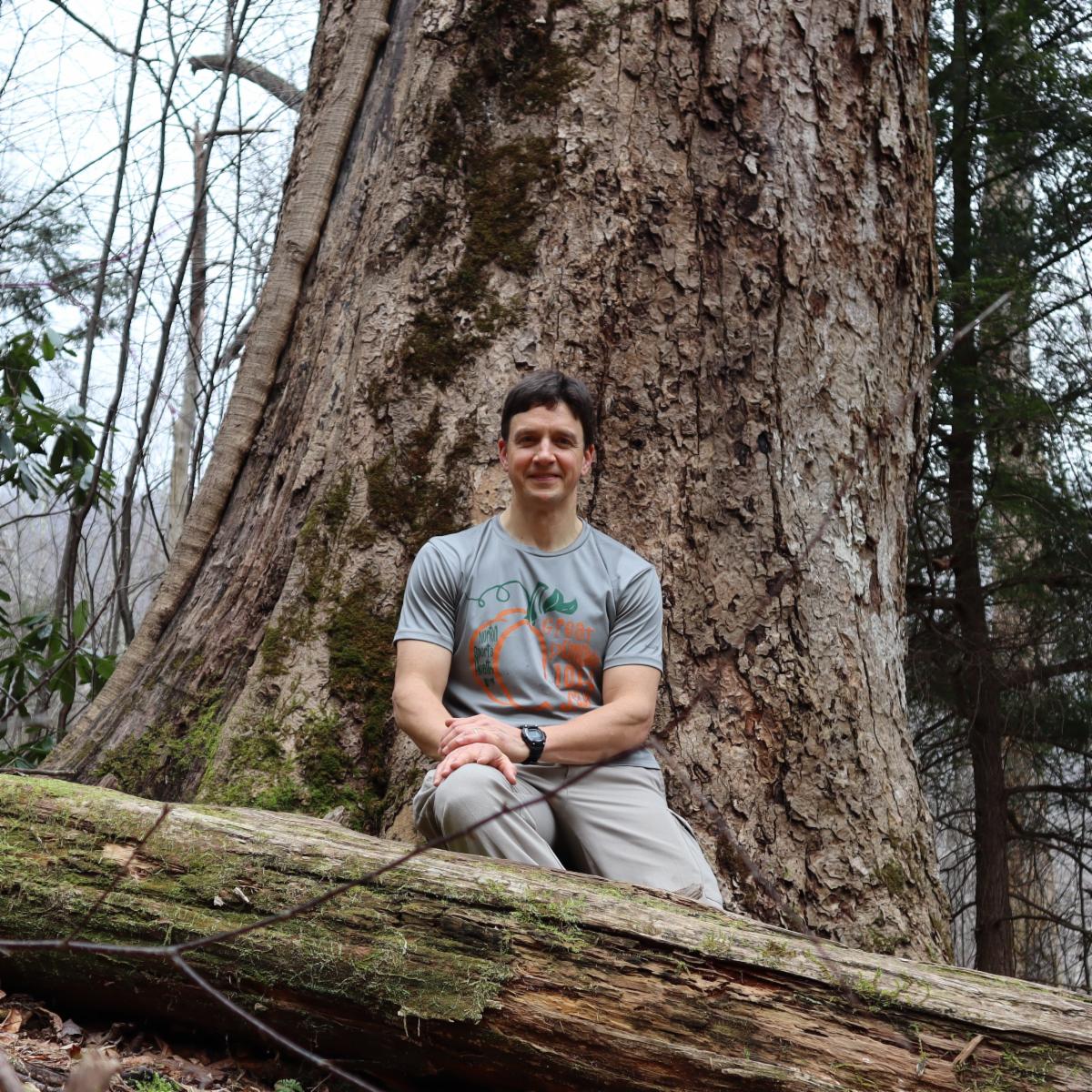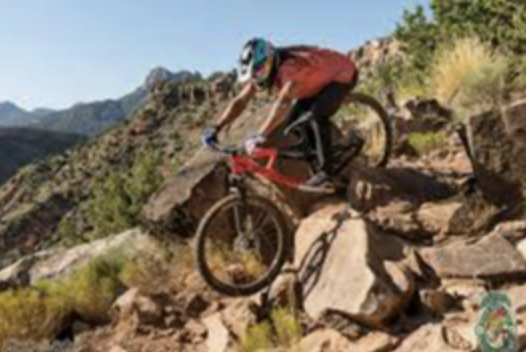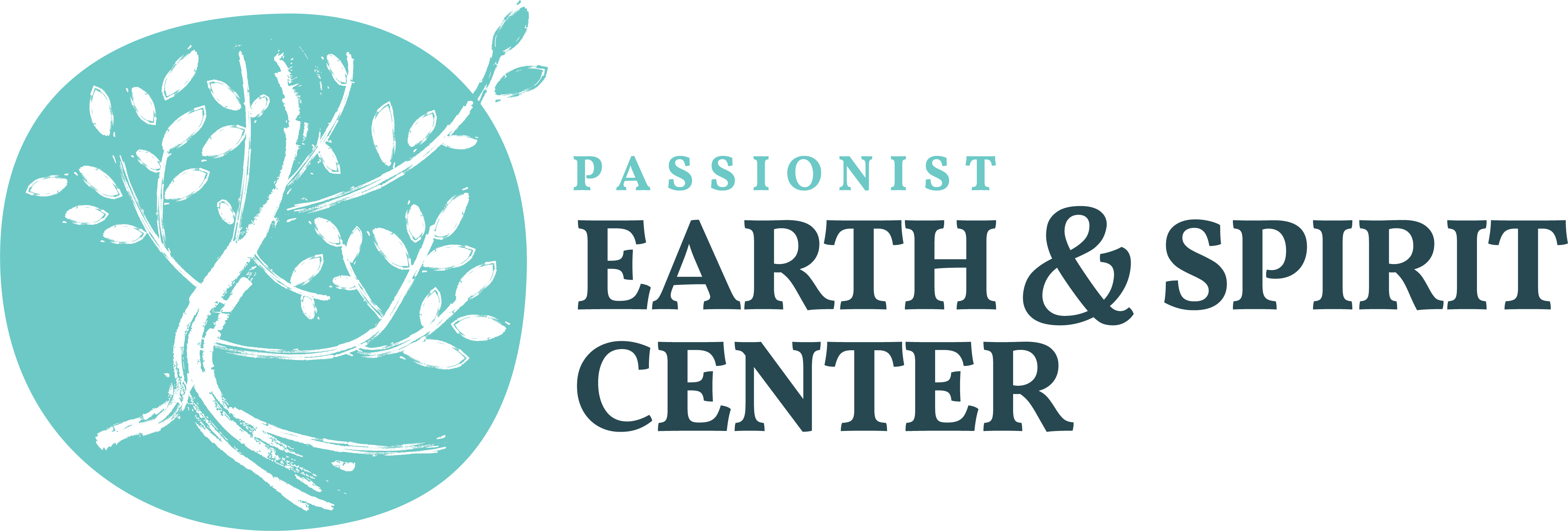Patience
 Assuming nothing fatal befalls me, this year I will hit the half-century mark. To honor that milestone and lean fully into the richness of my second half of life, I made a resolution to visit an old-growth forest this year. I got my chance a few weeks ago, when I traveled to the Great Smoky Mountains of eastern Tennessee to lead a retreat. After it concluded, I hiked about seven miles through Albright Grove, one of the finest stands of old-growth cove hardwood forest in the Eastern US.
Assuming nothing fatal befalls me, this year I will hit the half-century mark. To honor that milestone and lean fully into the richness of my second half of life, I made a resolution to visit an old-growth forest this year. I got my chance a few weeks ago, when I traveled to the Great Smoky Mountains of eastern Tennessee to lead a retreat. After it concluded, I hiked about seven miles through Albright Grove, one of the finest stands of old-growth cove hardwood forest in the Eastern US.Dr. Tony Zipple on Positive Psychology, Mindfulness, and Flourishing for Individuals and Organizations
Dr. Tony Zipple is an expert in behavioral health and rehabilitation counseling, in both clinical and academic settings, with extensive background in executive leadership of large organizations. In this episode, we reflect on Tony’s experience with positive psychology, mindful self-awareness, and how individuals and organizations can flourish, especially amidst change.
RESOURCES:
Donate to support this podcast: https://www.earthandspiritcenter.org/donate/
Earth & Spirit Center homepage: https://www.earthandspiritcenter.org/
Tony Zipple’s website: https://tonyzipple.com/
Incite Consulting Solutions: https://inciteconsultingsolutions.com/
Phil Lloyd-Sidle on Mindfulness and the Marginalized
Phil Lloyd-Sidle is an Earth and Spirit Center instructor who sees the linkage between mindfulness and social justice, including issues of incarceration, race, gender identity and sexual orientation, and the patriarchy. In this episode, Phil shares how mindfulness can help those on the margins – and all people – to embrace their own worth and value, navigate suffering, and cultivate compassion for themselves and others in our deeply interdependent world.
RESOURCES:
Donate to support this podcast: https://www.earthandspiritcenter.org/donate/
Earth and Spirit Center homepage: https://www.earthandspiritcenter.org/
Louisville Vipassana Community: http://www.louisville-vipassana-community.org/
Dharma Seed: https://dharmaseed.org/
Insight Meditation Society: https://www.dharma.org/
Plum Village: https://plumvillage.org/
Day Schildkret on Ritual and Radical Amazement
Day Schildkret uses found natural materials in outdoor settings to create Earth-based art whose beauty is utterly impermanent. He’s also the author, most recently, of Hello, Goodbye: 75 Rituals for Times of Loss, Celebration, and Change. In this episode, Day and I reflect on how nature, creativity, and ritual help us navigate change, make meaning, and remember our true wholeness and belonging.
RESOURCES:
Please support this podcast at https://www.earthandspiritcenter.org/donate/
Earth & Spirit Center website: https://www.earthandspiritcenter.org/
Day’s new book, Hello, Goodbye: 75 Rituals for Times of Loss, Celebration, and Change: https://www.dayschildkret.com/books
Day’s websites:
https://www.dayschildkret.com/
https://www.morningaltars.com/
Day on Instagram: http://instagram.com/morningaltars
Day on Facebook: http://www.facebook.com/morningaltars
Future-Driven or Future-Drawn?
 At the Earth and Spirit Center, our staff and board just concluded a new strategic planning process that provides an exciting, actionable vision for growing our programs in meditation, compassionate social justice, and Earth care, our retreats and summer camps, and our emerging mindful leadership work with non-profit and for-profit organizations.
At the Earth and Spirit Center, our staff and board just concluded a new strategic planning process that provides an exciting, actionable vision for growing our programs in meditation, compassionate social justice, and Earth care, our retreats and summer camps, and our emerging mindful leadership work with non-profit and for-profit organizations.Dr. Broderick Sawyer on Using Mindfulness to Overcome Duality and Division
Dr. Broderick Sawyer is a clinical psychologist who integrates mindfulness and compassion practices into his work with organizations and individual clients. This episode explores how mindfulness can inform psychological wholeness, promote healing from racial stress and trauma, and help overcome mind-states that perpetuate division.
NOTES AND RESOURCES:
Donate to support this podcast: https://www.earthandspiritcenter.org/donate/
Earth & Spirit Center website: https://www.earthandspiritcenter.org/
Broderick Sawyer’s website: https://www.brodericksawyer.com/
Broderick’s bio on the Earth & Spirit Center faculty page: https://www.earthandspiritcenter.org/about-us/our-team/broderick-sawyer/
Life is Risky
 As 2022 drew to a close, the Earth & Spirit Center board and staff concluded a months-long strategic planning process to help us chart our course for the next several years. One of the more mundane –though important! – administrative items that came up in conversation was the need to create transition plans for key staff members in the case of planned or unplanned departures. It’s something we’ve been meaning to do for years but not gotten around to. When I tried to reassure the board that I have no plans to leave my role, it was pointed out to me, only half-jokingly, that I do have some risky hobbies, namely rock climbing and mountain biking, that could put me out of commission pretty easily.
As 2022 drew to a close, the Earth & Spirit Center board and staff concluded a months-long strategic planning process to help us chart our course for the next several years. One of the more mundane –though important! – administrative items that came up in conversation was the need to create transition plans for key staff members in the case of planned or unplanned departures. It’s something we’ve been meaning to do for years but not gotten around to. When I tried to reassure the board that I have no plans to leave my role, it was pointed out to me, only half-jokingly, that I do have some risky hobbies, namely rock climbing and mountain biking, that could put me out of commission pretty easily.Deborah Eden Tull: Luminous Darkness as a Path of Spiritual Authenticity and Wholeness
Deborah Eden Tull is a Buddhist teacher, activist, author, and sustainability educator. In this conversation, we dive into her latest book, Luminous Darkness: An Engaged Buddhist Approach to Embracing the Unknown. We reflect on how darkness is an invitation to open-hearted, full-spectrum living, fierce compassion, relational mindfulness, and hopeful, courageous dreaming in the service of life.
RESOURCES:
Please donate to support this podcast and the Earth & Spirit Center nonprofit organization: https://www.earthandspiritcenter.org/donate/
Earth & Spirit Center website: https://www.earthandspiritcenter.org/
Eden’s website: https://www.deborahedentull.com/
Eden’s new book, Luminous Darkness: An Engaged Buddhist Approach to Embracing the Unknown: https://www.deborahedentull.com/luminous-darkness
Eden’s nonprofit, Mindful Living Revolution: https://www.deborahedentull.com/non-profit
